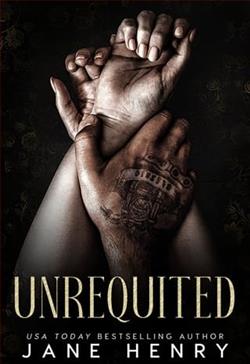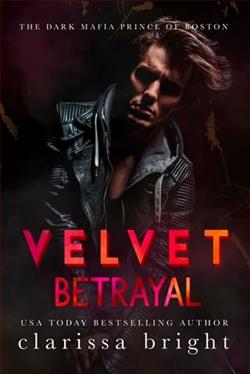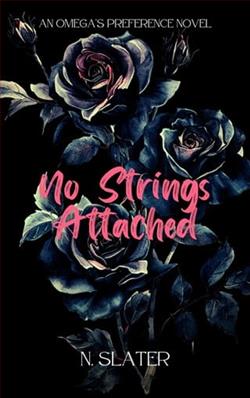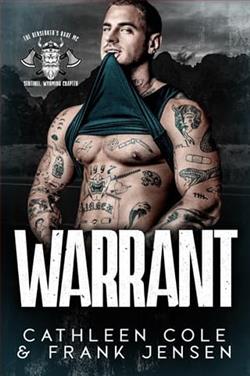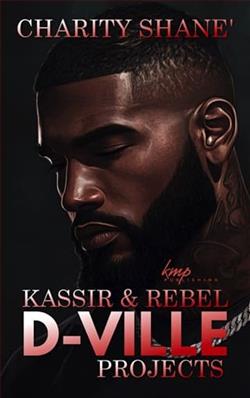Page 79 of Trapper Road
Thinking about my son being involved in that is one of my worst nightmares. I’ve been trying to protect my kids from the legacy of their father, but somehow I’ve ended up driving Connor directly toward it.
I choose my words carefully. “I understand he was your father. I know you loved him. But you want to remember only the best of him, before we learned what kind of man he truly was.”
“And you only want to remember the worst of him,” he cries. “Is that what you’d do to me ifIdid something wrong?”
The bottom drops out of my world. I can’t think of anything more painful than the possibility my son might think I could ever stop loving him. He has no idea that not loving him would be impossible. It would mean removing my heart from my chest. And even then, my cells would remember him and continue loving him.
I look him directly in the eyes, needing him to see and understand the truth of my words. “You could never do anything that would make me love you less, Connor.Never.”
He folds his arms across his chest and sticks out his chin. It’s his go-to gesture when he’s feeling vulnerable. “You say that, but you promised to love Dad too and you stopped.”
“That’s different.”
“How?”
I don’t know how to explain to him what happens when you become a parent — this shift that takes place within you. It’s a scientific fact that people’s brains change when they become parents. It’s primal, this love I feel toward my kids. It’s woven into every fiber of my being.
“You’re a part of me in a way that Melvin never was or could be.”
He cuts me off. “Dad was our parent too,” he says. “By your own logic, that means Dad loved us too.” He crosses his arms, daring me to contradict him.
I know what he wants me to say: he wants me to agree with him. He wants to be able to hold onto this vision of his father because facing the truth is too difficult and painful. A part of me wants to let him. It’s easier that way. And what’s the harm, really?
Except I can’t. Connor will come to understand the truth eventually, and it will be that much more devastating if it comes after years of holding on to this false belief.
“Some people are broken, Connor. Your father was one of them.”
“What if I’m broken too?” His voice is small and scared.
I move to sit next to him and pull him against me, wrapping my arms tight around him. It was so much easier when he was a child and holding him was enough to keep the demons at bay. I hate Melvin Royal for making my son doubt himself — for leaving him this awful legacy. If I could kill him all over again for the things he’s done to our children, I would without hesitation.
“You’re not broken, baby,” I say, kissing his temple.
“How can you know?”
“Well, for one, broken people don’t think they’re broken. They think they’re perfect. Even asking the question shows that you care what kind of person you are, that you care how you treat others. You’re loving and thoughtful and considerate.”
He pulls away so he can meet my eyes. “Did you have any idea about Dad before…” He doesn’t have to finish the thought. We both know what happened to cut our lives into before and after.
It’s a question I’ve been asked over and over again, and my answer is always a quick, emphatic no. The real answer is too complicated, too open to interpretation. But I owe Connor as close to the truth as I can get.
“I had no idea what Melvin was doing to those girls. I never realized he could be capable of anything like that.” I take a deep breath and add, “But… there were moments in our relationship that did make me question his capability for violence.”
The answer surprises him, which is understandable since I’ve never shared this with anyone but Sam and my therapist. “Like what?”
I don’t particularly want to tell my fifteen year old son how Melvin liked to choke me during sex, to the point that I sometimes passed out. Or the darkness I saw in him when I spoke up about it. “Maybe one day I’ll explain it to you more, but not now.”
His curiosity is evident, but he doesn’t press. Instead he asks, “Did you feel guilty when you found out what he’d been doing? Like you should have known and done something?”
“I did.” For a long time I blamed myself for not figuring it out, not stopping him. I wondered if on some level I’d known what he was capable of but had simply ignored it so long as the kids and I weren’t in danger.
“Do you feel that way about Kevin?” I ask quietly.
He nods slowly. “He was always saying things, but I thought he was kidding. I never thought he’d actually do something so—” his voice cracks.
My heart breaks hearing the pain in his words. I hate the burden he now carries, the guilt. I know how heavy those thoughts can be, how difficult to bear. “I’d tell you not to blame yourself — which is true, by the way. But it’s something you have to actually believe yourself.”
He looks skeptical. “What if I could have stopped him?”









